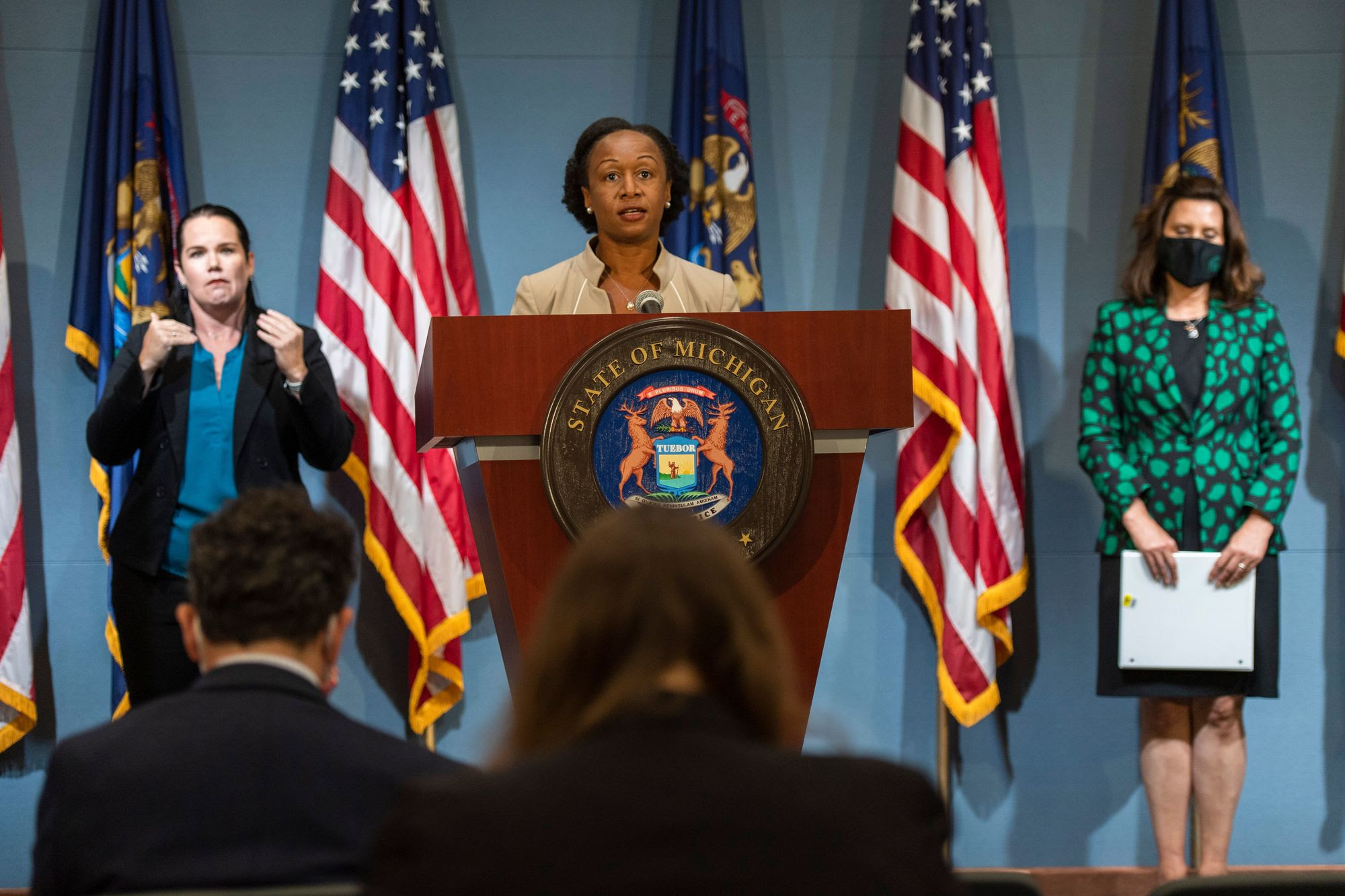A third of Michiganders who test positive for coronavirus refuse to tell public health officials who they’ve come in contact with, indicating widespread noncompliance with a system that epidemiologists say is crucial to slowing the pandemic.
Michigan’s chief medical executive, Dr. Joneigh Khaldun, raised concerns about the problem during a press conference Wednesday. Contact tracers are only able to reach around 70 percent of those who test positive for coronavirus within 48 hours of their diagnosis, she said, and only two-thirds agree to provide information on their contacts.
“This case investigation and contact tracing work is so important if we’re going to be able to successfully slow the spread of the disease in our state,” she said, adding that officials don’t publicly share contact information.
- Across Michigan, coronavirus contact tracers face lies, anger and silence
- Part nurse, part detective: A day in the life of a Michigan contact tracer
- The latest: Michigan coronavirus unemployment, curve, updated COVID-19 news
- Dashboard: Michigan coronavirus testing numbers, trends, COVID-19 data
Coronavirus cases have steadily increased in Michigan since mid-June, about two weeks after Gov. Gretchen Whitmer lifted her stay-at-home order that locked down much of the state. On Wednesday, the state recorded 891 new cases and 158 probable ones, the highest daily tally since May 1.
Since March, Michigan has 71,197 total cases and 6,085 deaths, the 13th highest in the nation for cases and seventh most for deaths.
Whitmer has attributed that rise to non-compliance with safety requirements, including a recent executive order requiring people to wear masks inside businesses and outdoors if they can’t maintain six feet of distance from others.
Low cooperation with contact tracing also doesn’t help, Khaldun said.
Contact tracing involves two steps: “Case investigation,” in which public health workers interview recently-diagnosed COVID-19 patients about whom they’ve come into contact with over the last few days, and contact tracing itself, in which officials call those contacts to warn them they may have been exposed.
A “contact” is usually counted as someone who the COVID-positive patient has had face-to-face contact with for more than 15 minutes over the last 48 hours, said Susan Ringler-Cerniglia, spokesperson for the Washtenaw County Health Department.
Epidemiologists say large-scale contact tracing is crucial to identify, track and control flare-ups in COVID-19. While a vaccine is still unavailable, reaching infectious people early helps limit potential community exposure.
“This will be incredibly important as we prepare for a potential second surge,” Khaldun said.
Lynn Sutfin, spokesperson for the Michigan Department of Health and Human Services, told Bridge there are now 422 trained volunteers making contact tracing calls for 16 of the state’s 45 local public health departments. Those departments comprise about 50 percent of the state’s total cases, including Detroit and Wayne, Kalamazoo, Genesee, Ingham, Saginaw counties and others.
Michigan also has a pool of nearly 10,000 other volunteers at the ready if tracing needs to ramp up.
However, most contact tracing and almost all initial case investigations are staffed by paid public health officials employed by local health departments. They do infectious disease sleuthing year-round and are well-acquainted with contact tracing.
Ringler-Cerniglia of Washtenaw County, which currently does not use the st

